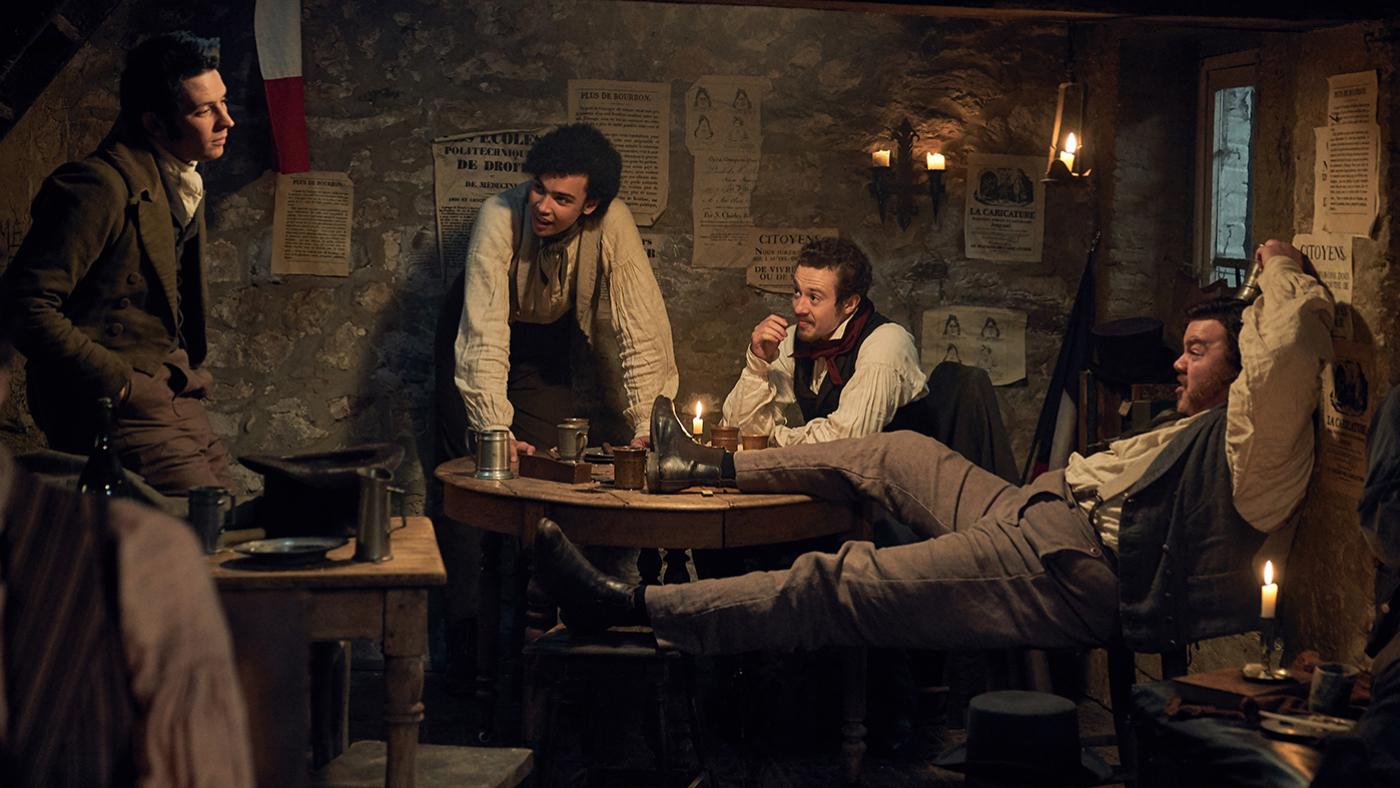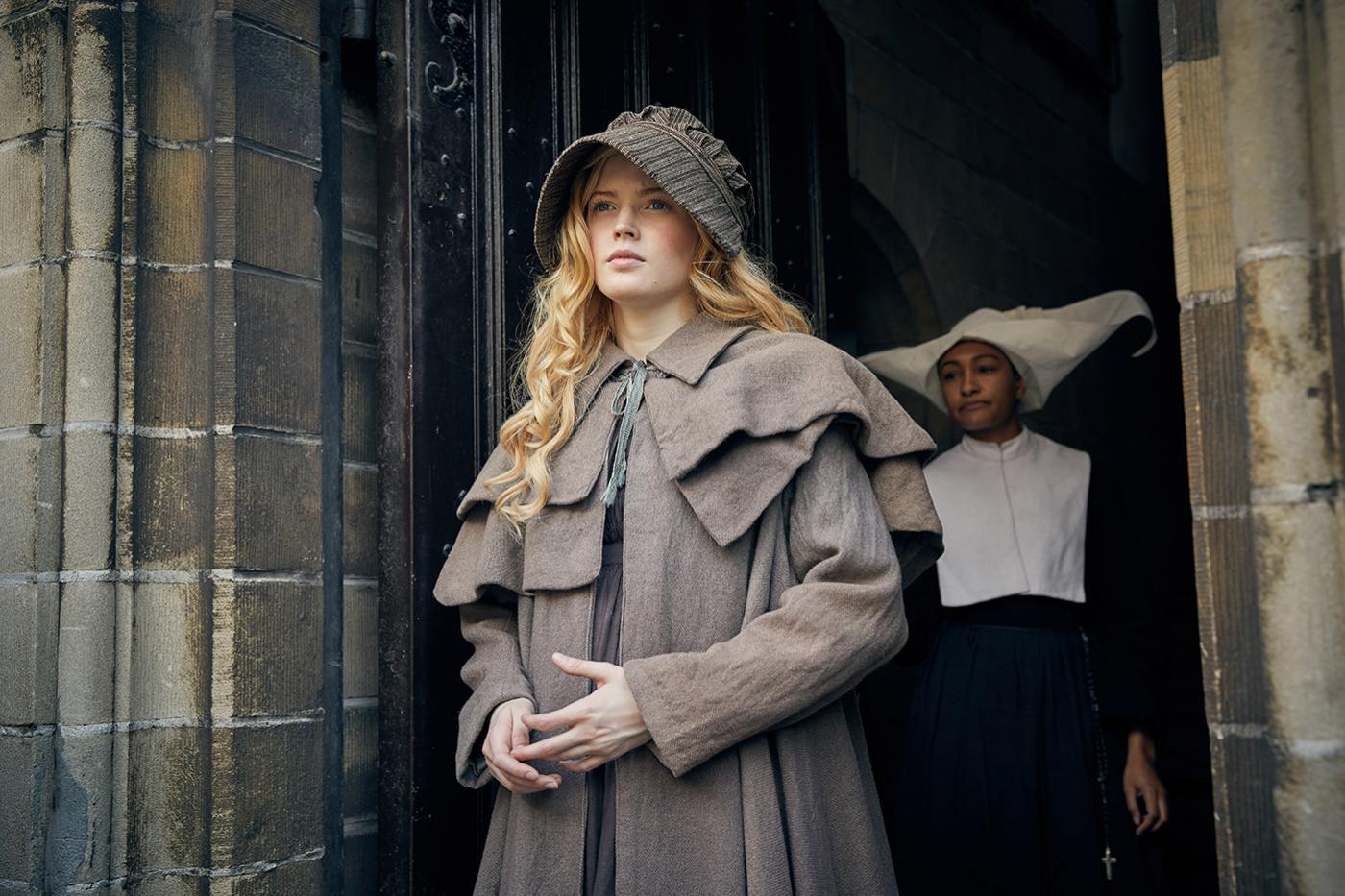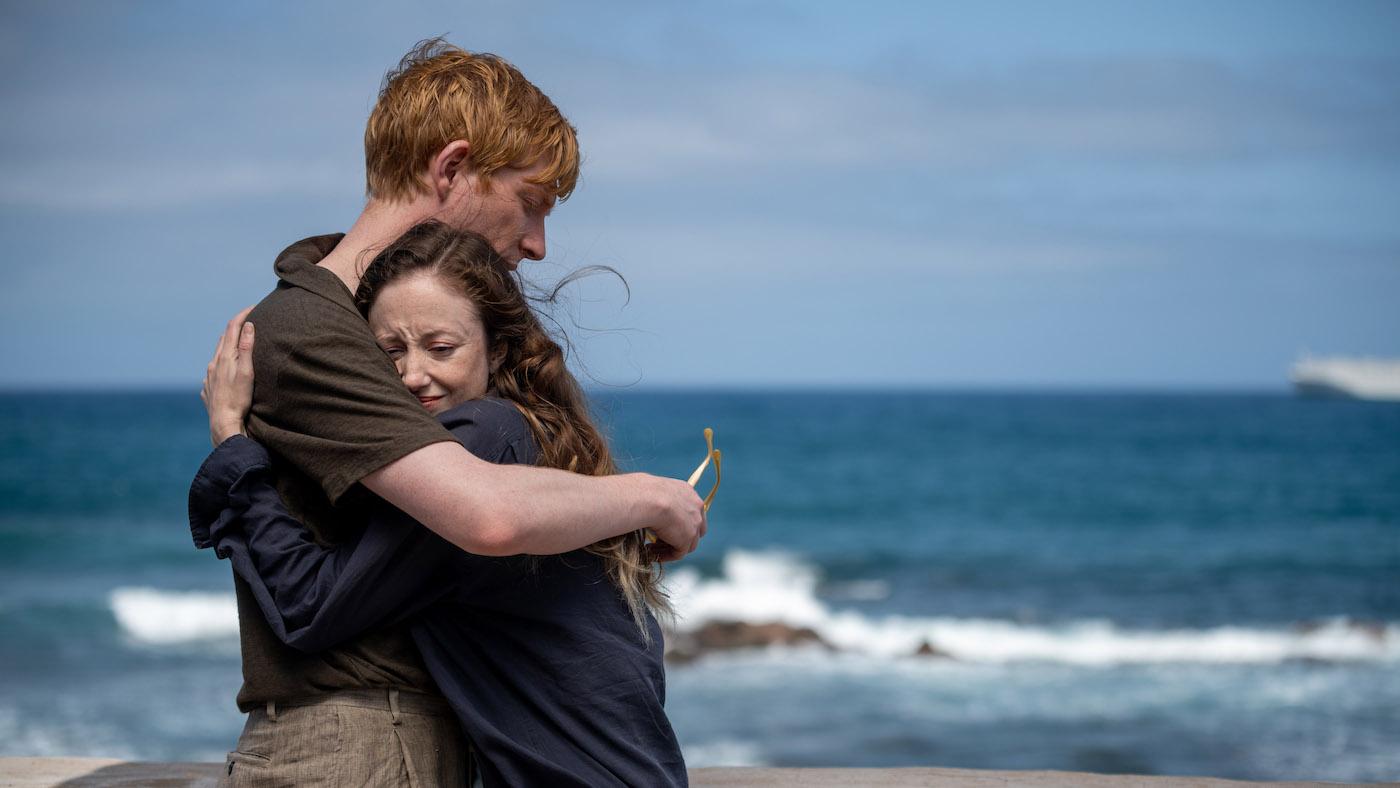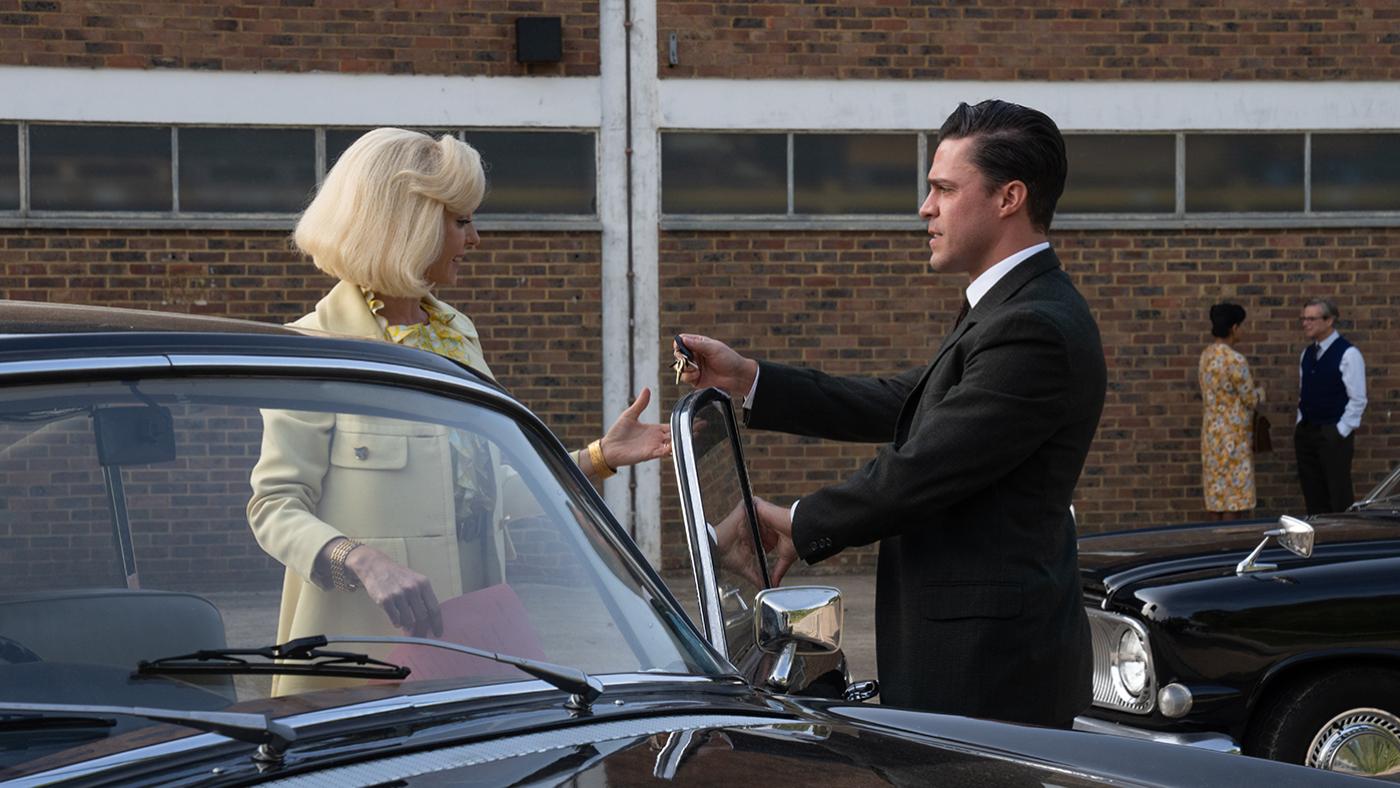'Les Misérables' Recap: Part 4
Daniel Hautzinger
May 5, 2019

Les Misérables is available to stream. Recap the previous and following parts.
Jean Valjean has finally found a haven where he is safe from Javert’s relentless pursuit, but his happy idyll has begun to feel like a prison to his beloved adoptive daughter, Cosette. After nearly a decade of living and studying in a convent, Cosette is now a young woman who is no longer certain she wants to take the veil, as was planned. She wants to see the outside world – but Jean knows all too well the evils of that world, and wants to protect Cosette from them. But, faced with Cosette’s pleas, he relents, and rents a well-appointed house in Paris using the money he still has buried in the woods.
Like Cosette, Marius has also turned against his adoptive father’s wishes, although much more decisively. While praying in church one day, he meets a man named Mabeuf, who reveals that Marius’s estranged father Colonel Pontmercy came to see Marius every week at mass, weeping because he could not be a part of his son’s life. Mabeuf also tells Marius of Pontmercy’s heroic deeds in Napoleon’s army during the war. Filled with these new revelations about the father he had been taught to despise, Marius confronts his grandfather Gillenormand over the lies he told about Marius’s father. Marius has been inspired by his father’s example to become a Bonapartist; the ardent monarchist Gillenormand throws him out of his house.
Marius, a law student, takes lodging in the same tenement that Jean and Cosette once lived in, back when they first came to Paris. The Thénardier family happens to live next door, and Éponine, one of the daughters, flirts with Marius through a peephole between their rooms. Marius also begins hanging around a tavern with some fiery republicans who preach revolution: they want a more equal government, and in their eyes Paris is like a powder keg waiting to explode.
Jean views the whole world as though it might blow up in his face, and continues to confine Cosette out of fear for her wellbeing. After she asks Jean about her mother and learns Fantine’s tragic story, she complains that her new home is more of a prison than the convent. Once again, Jean reluctantly relents, and begins taking her for walks in the Luxembourg Gardens.
 Despite his desire to protect Cosette, Jean reluctantly takes her for walks in the Luxembourg Gardens. Photo: Robert Viglasky / Lookout Point
Despite his desire to protect Cosette, Jean reluctantly takes her for walks in the Luxembourg Gardens. Photo: Robert Viglasky / Lookout Point
There, Marius glimpses Cosette and becomes enchanted. He makes sure to be at the Gardens at the same hour every day so that he can see her. Once she notices him, the attraction is mutual, and she drops a handkerchief so that she has an excuse to speak with him out of earshot of Jean. But when Jean learns that she told Marius her name, he is scared and upset, and forbids any further trips to the Gardens. To show Cosette how cruel the world can be, he takes her instead to watch the sun rise, at a spot where he knows they will see a line of convicts in chains march by under the whip. Instead of inspiring pity, this sight induces a deep revulsion in Cosette towards the prisoners – a bitter source of pain for Jean, who was once one of them.
The disappointed Marius is dragged by his new friends to an establishment full of prostitutes, where he runs into Éponine. While he stumbles home without partaking in the “entertainment,” Marius does have confused dreams of Cosette and Éponine. The Thénardier girl has herself fallen in love from afar with Marius, and the next day she goes to meet him in his room. Her father, noticing Marius’s fine clothes, has sent her to beg money by means of a piteous letter. Taking pity on Éponine, who hints that she must sometimes turn to prostitution for money, Marius gives her some coins – for her only, not her family.
The greedy Thénardier, however, takes the money from her and hits her in the process. But when he sends Éponine off to extort another mark – the wealthy-looking Jean, whom Éponine has seen in the Gardens – she swipes the coins back for herself.
Moved by Éponine’s ragged condition, Jean promises to visit her family in the tenement and bring them clothes. Cosette recoils from Éponine, who was once her tormentor and playmate, though neither of them realizes it. Angered by Cosette’s reaction to the prisoners and her increasing desire for independence, Jean decides to bring her with him to the Thénardiers so that she can see real poverty.
 Cosette has little experience of the real world, having grown up in a convent. Photo: Robert Viglasky / Lookout Point
Cosette has little experience of the real world, having grown up in a convent. Photo: Robert Viglasky / Lookout Point
The Thénardiers are happy to oblige in a show of deprivation. Monsieur orders his daughter Azelma to smash a window with her bare hand when he sees Jean and Cosette on their way, leading Azelma to howl in pain and bleed profusely. When Jean steps into the room, both he and Thénardier have a flash of recognition, and Thénardier begins to gripe about the man who stole away his daughter, effectively blackmailing Jean. Afraid of what Thénardier might do, Jean promises to return that night with money.
As Jean and Cosette leave the tenement, Marius catches sight of Cosette but fails to reach her before their carriage has pulled away. Knowing that Éponine brought Jean to the tenement, he asks her to discover Cosette’s address. As he returns to his room, he overhears Thénardier planning to rob and murder Jean. Terrified, Marius reports the plan to Javert, who has received a medal of honor for his police work in the years since he lost Jean. Javert gives Marius two pistols and tells him to signal the police by firing one after Thénardier and his thugs have begun to attack Jean – they need to be caught in the act in order to be arrested.
When Jean arrives at the Thénardier apartment that evening, he strongly recommends that Thénardier and his family leave Paris; he’ll pay them well to do so. But a gang of men emerges from the shadows of the room and surrounds Jean, turning the threat on him. As they close in, Thénardier rants about the injustice of the world: he saved Colonel Pontmercy – he even made a painting of the deed – at Waterloo, and has gotten nothing for it. Marius, watching and listening through the peephole, is startled. His father told him on his deathbed to do well by the man who he believed saved his life. As the men grab Jean and pin him down, Marius hesitates in firing the pistol.
Holding a hot brand in Jean’s face, Thénardier threatens Cosette. That summons a superhuman reserve of strength in Jean, and he manages to overpower the men holding him, grabbing the brand in the process. Facing down his attackers, he burns himself on the arm – they’re terrified. As a scuffle breaks out, Marius finally fires on accident, startled by the sudden shattering of a window.
The police burst in. Jean, afraid of any encounter with the police, dashes out the window in the tumult and hides on the window ledge before Javert enters and sees him. Thénardier and his accomplices are rounded up, the police leave, and Jean escapes home to Cosette, who is sobbing under a table with her rosary in fear for his safety.
Back at the tenement, Marius wanders into the overturned Thénardier apartment to look at Thénardier’s painting of his rescue of Pontmercy. As he stares at it, the wily Thénardier boy Gavroche comes in and introduces himself. The rest of his family may be in prison, but he’s sanguine. Everyone else – Marius, Jean, Cosette – not so much.







